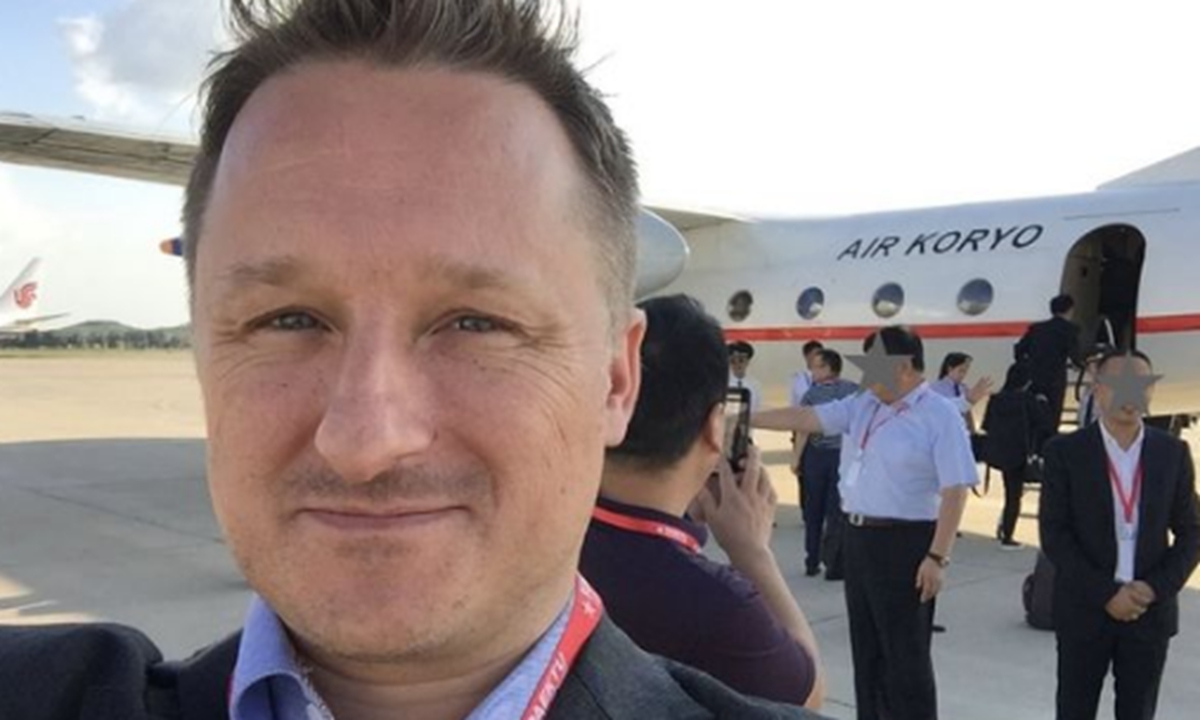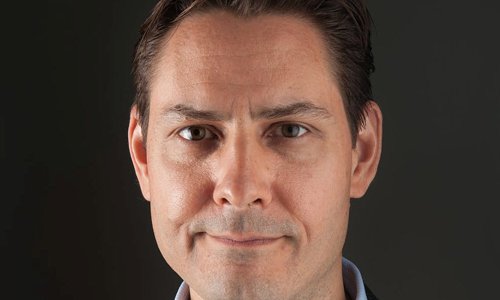
(File Photo: Michael Spavor)
Canadian citizen Michael Spavor, who was sentenced in August to 11 years in prison for espionage and illegal provision of China's state secrets to foreign entities, was found to have taken photos and videos of Chinese military equipment on multiple occasions and illegally provided some of those photos to people outside China, a source close to the matter told the Global Times on Wednesday.
Spavor was convicted of spying on China's national secrets and was ordered deported from China, a court in Dandong, Northeast China's Liaoning Province, announced on August 11. Spavor was also ordered to have his personal property of 50,000 yuan ($7,715) confiscated.
The source revealed that during his stay in China, Spavor took photos and videos of Chinese military equipment on multiple occasions and illegally provided some of those photos to people outside China.
The photos and videos have been identified as second-tier state secrets. Spavor was a key informant of another Canadian defendant, Michael Kovrig, and provided him with information over a long period, the source said.
A court in Beijing opened the trial of former Canadian diplomat Kovrig over espionage charges on March 22. The verdict was said to be announced at a chosen time in accordance with the law.

Former Canadian diplomat Michael Kovrig (Photo: VCG)
The source said between 2017 and 2018, Kovrig entered China under the guise of a businessman and false pretext of commerce. In Beijing, Shanghai, Jilin and other places, through his associates, Kovrig gathered a large amount of undisclosed information related to China's national security, on which he wrote analytical reports. The information Kovrig gathered included second-tier state secrets and intelligence.
According to the source, Kovrig and Spavor have been in good health since being taken into custody. The detention centers pay close attention to their physical condition and carry out physical examinations periodically.
The relevant authorities have handed over letters and books to them, and arranged consular visits by Canadian Embassy officials in accordance with laws and regulations, including virtual visits during the COVID-19 pandemic.
"Their legitimate rights, including right of correspondence and consular visits, are guaranteed. In a humanitarian spirit and on a lawful basis, the relevant authorities take good care of their dietary and exercise needs. Both of them have had phone calls with their overseas family members," the source said.
As August 26 marked the 1,000th day since Meng Wanzhou, a senior executive of Huawei, was detained in Canada, Chinese Ambassador to Canada Cong Peiwu made a phone call with Meng to express his sympathy and denounce the misdeeds of the Canadian government. The ambassador urged Canada to take the collective public opinion of over 1.4 billion Chinese people seriously in demanding the immediate release of Meng.
However, some Canadian media and politicians continue to ignore the collective voice of the Chinese citizens. Nevertheless, they have been quick to connect the incident of Meng with the recent judgments in China of Spavor and Robert Schellenberg, another Canadian citizen who was sentenced to death for drug trafficking in August.
The Chinese Foreign Ministry and embassies have lashed out at Canada for ganging up with other countries over the cases of Spavor and Schellenberg, and urged these countries to respect the rule of law in China and stop politicizing judicial cases.


